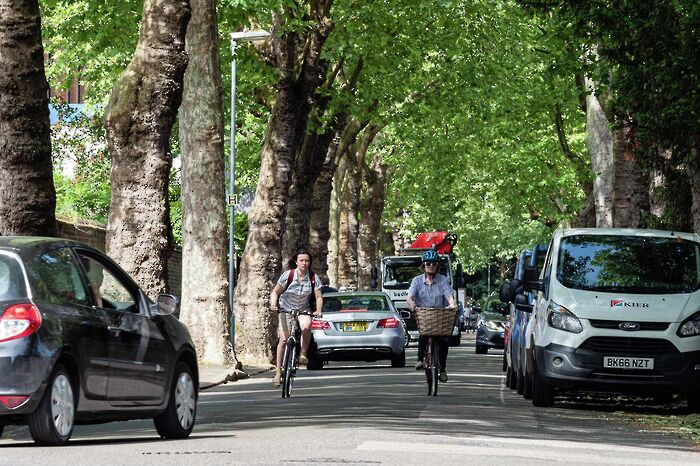Cambridge should do more to reduce academic flying
Sarah Foster explains the environmental impact of academic flying, and urges Cambridge to lead the way and reduce their use of academic flying.

The Department of Physiology, Development and Neuroscience (PDN), has analysed the carbon footprint of work-related travel in the department. Work-related flights were associated with the emission of at least 215 metric tonnes of carbon dioxide equivalent (CO2e). PDN is likely not a particularly egregious offender in this regard. In fact, I suspect we’re quite average. The point is rather that many academics fly indiscriminately at a time when it is no longer morally defensible to do so.
Nonetheless, very few concrete measures have been put in action to enforce or encourage behaviour change, and there is significant resistance among academics against placing restrictions on flying. Many academics consider flying to numerous conferences critically important for their professional development and future career prospects (although a study of Canadian academics found no correlation between flying and academic success), and established academics fly frequently to to disseminate their research group’s work by giving seminars at other institutions.
Perhaps most concerning, restrictions on flying, if done thoughtlessly, could disproportionately affect early career researchers or scientists from developing countries, who may need to fly more often and for longer distances in order to meet with collaborators and leading researchers in their fields.
“Replacing these journeys with trains would have reduced the department’s emissions by well over 2.5 Tonnes of CO2e.”
On the other hand, the perceived requirement for excessive travel, puts an undue burden on young scientists who are strapped for cash, on scientists for whom travel takes them away from a young family or older relatives who require care, and on scientists with disabilities for whom travel may be more difficult, expensive, and exhausting.
Given the current climate realities and the large environmental impacts of air travel, if the professional cost of not flying to five or six conferences a year is really so catastrophically high, this is something that we, as members of the academic community, must work urgently to change. The University of Cambridge is an institution of immense privileges and resources, and has a responsibility to use this status to encourage the culture changes that are needed to make academic science more sustainable. To this end, the University should restrict flying and subsidise more sustainable alternatives such as train travel and videoconferencing.
Departments should write flying restrictions into contracts for new professors, and ask established faculty members to justify frequent flying. It seems unlikely that departments would voluntarily take such actions without a directive from the top, but the University could impose some sort of tax to penalise departments with high levels of flying. Going to fewer conferences will have less of a professional cost than it may for others. While imposing restrictions may sound punitive, time not spent travelling can be put to good use – spending more time with loved ones, or engaging with students and colleagues, for example.
Not flying doesn’t necessarily mean not attending conferences. Many flights could be replaced by train journeys, which generally produce much lower emissions. Twenty-five flights were taken by PDN members last year to destinations that can be reached by a single Eurostar journey (Paris, Amsterdam, Brussels). Replacing these flights with trains would have reduced the department’s emissions by well over 2.5 tonnes of CO2e.
The University should insist that journeys taken on University business within the UK and to European countries, easily accessed by train, must be taken by train. Departments or the University should subsidise these train journeys to ensure it is not an unreasonable cost to the researchers.
One possible alternative to in-person conferences are video conferences or virtual meetings. A survey of PDN members last year revealed that an overwhelming majority of researchers were wary of virtual options because they were concerned about the loss of networking opportunities – the informal chats during coffee breaks and poster sessions that are often one of the most useful parts of a conference.
However, videoconferencing could still effectively replace many types of seminars and small meetings. And while videoconferencing technology is still imperfect, the University should invest in providing faculty and staff with good facilities to conduct virtual meetings. Increased usage will encourage and inform the technical developments that are needed to expand the utility of virtual options.
It is incumbent on those in positions of power – people in the university administration and academics in prominent and established positions – to lead by example. This can be by reducing their own flights, being vocal about the reasons they choose not to fly, and making it clear to those applying for jobs in their laboratories or departments that a concern for sustainability and careful selection of conferences and talks is more important than the sheer number they have attended.
Without the unequivocal and enthusiastic support of the University administration, the efforts of the environment and energy sectors will inevitably lack the impetus they need to bring about the required changes. By addressing this issue with conviction and leadership, Cambridge can prove that it has the moral courage to commit to difficult and necessary changes.
 Features / Should I stay or should I go? Cambridge students and alumni reflect on how their memories stay with them15 December 2025
Features / Should I stay or should I go? Cambridge students and alumni reflect on how their memories stay with them15 December 2025 News / Cambridge study finds students learn better with notes than AI13 December 2025
News / Cambridge study finds students learn better with notes than AI13 December 2025 News / Dons warn PM about Vet School closure16 December 2025
News / Dons warn PM about Vet School closure16 December 2025 News / News In Brief: Michaelmas marriages, monogamous mammals, and messaging manipulation15 December 2025
News / News In Brief: Michaelmas marriages, monogamous mammals, and messaging manipulation15 December 2025 Comment / The magic of an eight-week term15 December 2025
Comment / The magic of an eight-week term15 December 2025









